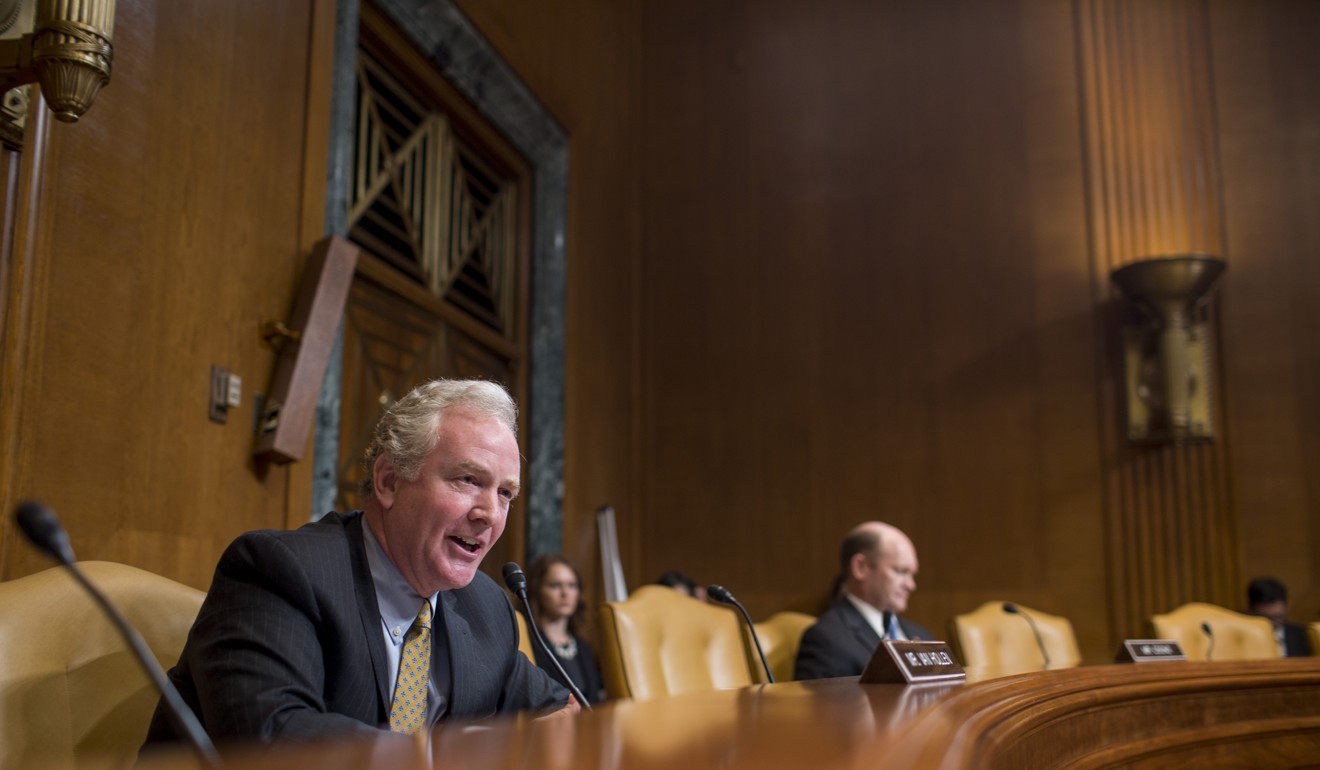
Two US lawmakers criticise watered-down Senate bill that allows ZTE to survive
A Republican and a Democratic senator said the failure to reinstate penalties on ZTE threatens US national security
Two US senators who led an effort to reinstate punishing penalties on ZTE sharply criticised their colleagues for dropping a provision in a defence spending bill that would have reimposed the ban.
By a vote of 87-10, the Senate on Wednesday passed a US$716 billion defence appropriation bill that did not include the amendment reinstating the ZTE supplier ban that US President Donald Trump had ordered lifted.
Republican Senator Marco Rubio, who has long been critical of ZTE, voted against the annual military spending bill for the first time in his career.
“In my seven years in the Senate I have never voted against the National Defense Authorization Act until today,” Rubio said in a tweet on Wednesday. “The decision to cave and allow ZTE to stay in business in [the] US gives China an unacceptable ability to threaten our telecommunications network.”
Democratic Senator Chris Van Hollen said after the passage of the bill that he “remained deeply disappointed that Republican conferees caved to White House pressure and ZTE’s lobbying efforts at the expense of our national security.”
“I will continue working with like-minded colleagues in the Senate to hold ZTE accountable,” Van Hollen, who voted yes on the defence bill, said in a statement.
Van Hollen’s office did not immediately respond to a request for details about what specific steps the senator might be considering.

Van Hollen said that ZTE had spent more than US$1.3 million on lobbyists to help get the amendment pulled from the spending bill. And it succeeded.
“We have just sent the worst of all signals to China – whether ZTE or Huawei or others – that we are not really serious when we say if we catch you violating our sanctions we will punish you,” Van Hollen said on the Senate floor on Tuesday as the measure was debated.
Passage would say that “we're not serious in defending our country from espionage,” he added. “Or that we're not serious about defending our country from the theft of our intellectual property. And that is a terrible and very weak message to send.”
ZTE, the second largest telecoms equipment maker in China, was originally fined by the Department of Commerce in 2017 for violating US trade laws by selling products to US-sanctioned North Korea and Iran. This April, the US reactivated the penalty after it found out ZTE had lied about having taken measures against the employees who were responsible for the violations.
ZTE was prohibited from buying American electronics components for seven years, which led to the company shuttering most of its operations in May.
Trump ordered the ban lifted in what he said was part of trade negotiations with China. ZTE agreed to fines totalling US$1.4 billion, a new board of managers and a compliance office overseen by US-approved staff, and resumed business in July.
The ZTE back-pedalling had met with resistance from some lawmakers, who said the payments did not address what they considered national security concerns.
In June, the Senate had passed a bipartisan amendment, which was introduced by Van Hollen and Republican Senator Tom Cotton, to undo Trump’s settlement. The amendment also would have banned the US businesses and the government from using the products and services from entities controlled by China, including ZTE and Huawei Technologies.
But a compromise bill negotiated between the Senate and the House of Representatives adopted a less stringent version that only prohibits the US government from using such technologies but allows ZTE to do business in the US.
The bill now goes to the president, who is expected to sign it into law.
On Tuesday, Van Hollen questioned the dropping of the ZTE amendment, saying the move “creates an opportunity for China to harm our national security.”
“ZTE poses an espionage threat to the United States. Translated – spying on Americans,” he said. “It's one of the most notorious thieves of intellectual property anywhere in the world.”

